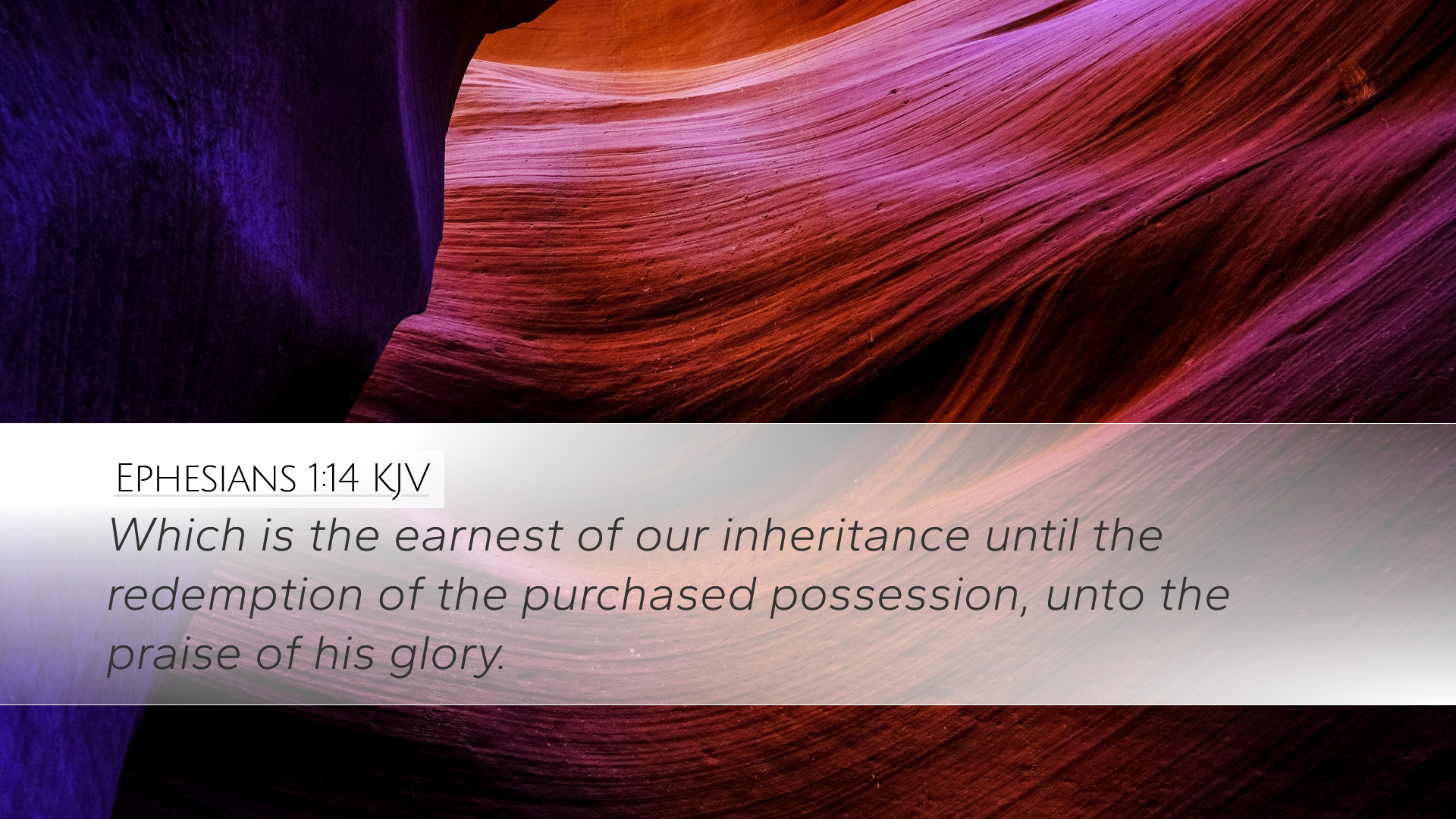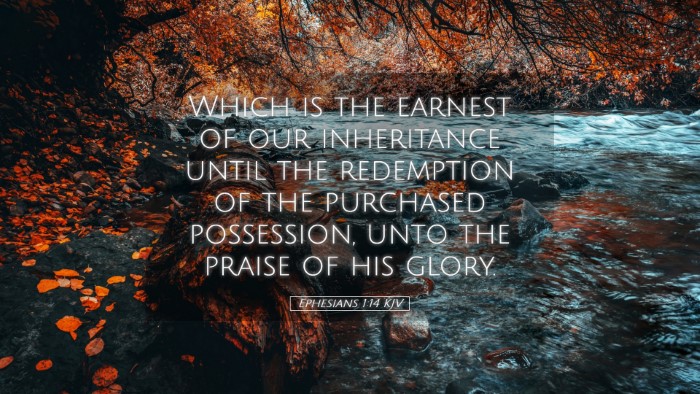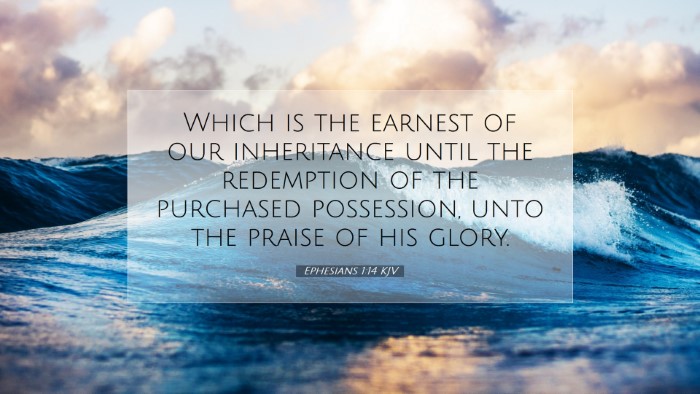Ephesians 1:14 - Commentary and Insights
Verse Context: Ephesians 1:14 states, "Which is the earnest of our inheritance until the redemption of the purchased possession, unto the praise of his glory." This verse encapsulates significant theological themes such as the role of the Holy Spirit, the concept of inheritance, and the assurance of salvation.
Introduction
The Apostle Paul, in the Epistle to the Ephesians, lays a profound theological foundation that emphasizes the believer's identity in Christ. Ephesians 1:14 serves as a pivotal verse that combines the assurance of the believer's inheritance with the work of the Holy Spirit. The insights from prominent Bible commentators such as Matthew Henry, Albert Barnes, and Adam Clarke provide a rich exploration of this verse.
Commentary Analysis
Matthew Henry's Insights
Matthew Henry describes the Holy Spirit as the "earnest" of our inheritance, defining "earnest" as a term akin to a down payment or pledge. According to Henry, this signifies a couple of key points:
- Assurance: The presence of the Holy Spirit in the believer's life guarantees the full realization of the inheritance to come.
- Inheritance Defined: The inheritance in this context refers to the blessings of salvation, eternal life, and all spiritual gifts bestowed upon the believer through Christ.
Henry further highlights that the "purchased possession" refers to the Church, which Christ acquired through His redemptive work. Thus, the verse is not just about individual salvation but also about the collective body of believers, which God has claimed for Himself.
Albert Barnes' Contributions
Albert Barnes elaborates on the meaning of "earnest" in a manner that complements Henry's analysis. Barnes notes that this term is significant in legal and commercial contexts, providing assurance and security:
- Guarantee of Future Blessings: The Holy Spirit acts not just as a seal of the believer's security but as a promise of the ultimate redemption and continuation of God’s covenants.
- Nature of the Holy Spirit's Work: Barnes discusses the transformative work of the Spirit within believers, creating assurance and hope through the evidence of spiritual gifts and fruit.
Barnes insists that the temporal blessings of the Spirit are a precursor to the eternal inheritance, thus providing the believer with both hope and responsibility as they await the final salvation.
Adam Clarke's Exegesis
Adam Clarke offers a systematic analysis of the terms used in this verse. He emphasizes the Greek roots and the implications of "redemption" and "inheritance." Clarke interprets the text as follows:
- Redemption as a Process: Clarke notes that the work of redemption is ongoing, suggesting that while believers are already redeemed in a spiritual sense, they await a future complete redemption.
- Inheritance Through Christ: He underscores that the inheritance is predicated on being in Christ, thus reflecting the Pauline discussion regarding unity and identification with Him.
In addition, Clarke expresses that the inheritance is characterized by its nature—it is not only a future hope but a present reality through the Spirit working within the believers.
Theological Implications
This profound verse consolidates essential doctrines such as:
- The Immediacy of the Holy Spirit: The Holy Spirit acts as both a seal and a promise, assuring believers of their saved state and inherited blessings.
- The Collective Nature of Salvation: This verse reminds the believers of their communal experience, as it speaks of a purchased possession—not solely individual salvation but the unified body of Christ.
- The Nature of God’s Glory: Salvation culminates in the glorification of God, emphasizing that the ultimate purpose of redemption is to the praise of His glory.
Application for Modern Believers
For pastors, students, and theologians, understanding Ephesians 1:14 encourages a deeper recognition of not only personal faith but also the broader narrative of redemption and inheritance in the Christian doctrine. Relevant applications include:
- Fostering Assurance: Believers today can find peace knowing that the Holy Spirit assures them of their salvation and inheritance.
- Encouraging Evangelism: Understanding the communal aspect of the Church as the purchased possession can inspire believers to share the gospel, thereby inviting more into this inheritance.
- Worship and Praise: Recognizing that their salvation and future hope contribute to God’s glory should result in a lifestyle of praise and thanksgiving.
Conclusion
Ephesians 1:14 serves as a theological cornerstone for the understanding of salvation, the work of the Holy Spirit, and the identity of believers as part of God's chosen possession. The insights from Matthew Henry, Albert Barnes, and Adam Clarke offer layered interpretations that encompass assurance, the significance of inheritance, and the ongoing transformative work of the Holy Spirit. Ultimately, this verse invites all believers to a deeper experience of their faith and an understanding of their role within the body of Christ, leading to a life that glorifies God.


